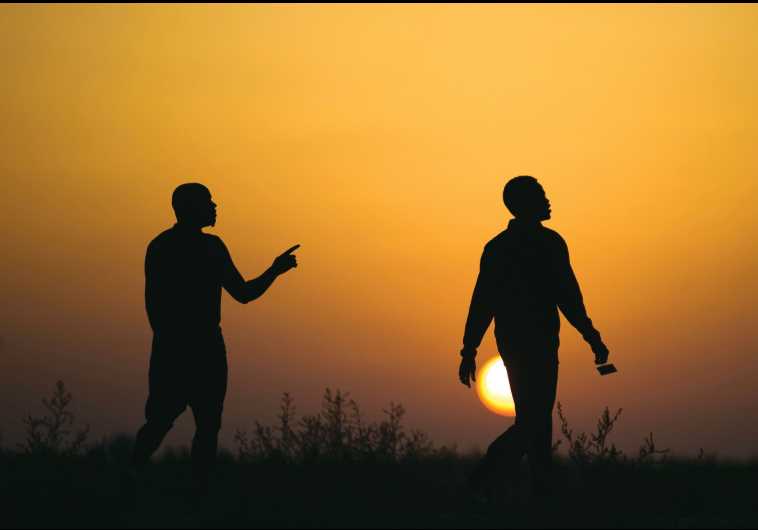Rabbinical delegation visits Holot detention center in solidarity with African asylum seekers
Some 45,000 people from Africa claiming asylum and refugee status currently reside in Israel.
 African migrants walk outside Holot open detention center in the southern Negev last year.
African migrants walk outside Holot open detention center in the southern Negev last year.